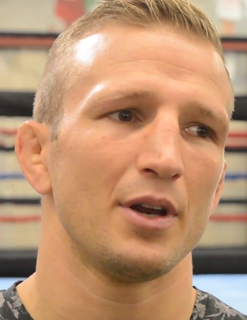A Quote by Karl Marx
I pre-suppose, of course, a reader who is willing to learn something new and therefore to think for himself.
Related Quotes
I think Dexter is a man who ... a part of himself is very much frozen, or arrested in a place that is pre-memory, pre-conscious, pre-verbal. Something very traumatic happened to him, he doesn't know what that is. And I think on some level he wants to know. He denies his humanity, he describes himself as someone who is without feeling, and yet I think that he maybe suspects - in a way that maybe isn't even conscious yet when we first meet him - that he is in fact a human being.
Every reader, as he reads, is actually the reader of himself. The writer's work is only a kind of optical instrument he provides the reader so he can discern what he might never have seen in himself without this book. The reader's recognition in himself of what the book says is the proof of the book's truth.
Of course, you can never watch something like somebody else watches something like you, but nonetheless, you have to try. So I think on camera you learn a lot about how much the camera does for you, which is what is the great luxury of movie acting. Or acting whether it's TV or movies or whatever it is, that the camera's really such a gift because there's so much that it sees and does if you're willing to just be open and expose yourself and all of that. So you also learn what doesn't matter. And sometimes when you think about things, you think things matter that don't matter.
It's stimulating to teach a new course. To teach a course three times in a row is, I think, about the maximum for me. On the second year - you know, the saying is that first year you learn how to teach the course, the second year you do it right, and the third year you're coasting and you had better move on to something else.
When you mentioned something about self improvement, the implication is that the negro is something distinct or different, and, therefore, needs to learn how to improve himself. Negro leaders resent this being said, not because they don't know that it's true, but they're thinking, they're looking at it personally. They think that the implication is directed even at them, and that they, and they duck this responsibility.
In regard to music, I just think that it's always best to have an attitude of being a perpetual student and always look to learn something new about music, because there's always something new to learn. Don't dismiss something out of hand because you think it's either beneath you or outside of the realm of where your interests lie.
If my setting is new to a reader, or the concerns of the novel are new, I hope they will learn something about the world. I would like to say that they can trust that what they do learn in the novel will be accurate, because I pay a lot of attention to facts. I do a lot of research to make sure that I'm not giving them, you know, blue moons of Jupiter. It's not science fiction.








































